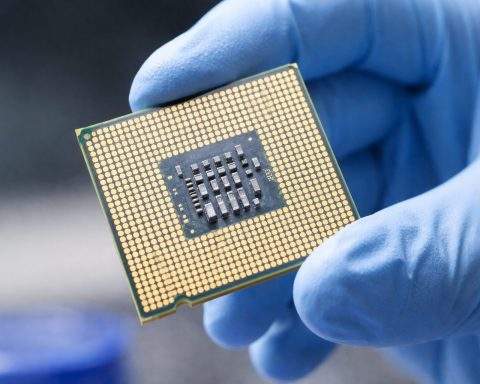Key Facts
- Broadcom’s AI Bonanza: Chipmaker Broadcom surged nearly 10% after revealing a massive $10 billion AI processor order from a new customer (widely believed to be OpenAI) and raising its revenue forecast, underscoring red-hot demand for AI infrastructure. CEO Hock Tan said AI-driven sales will “improve significantly” in 2026 thanks to the blockbuster deal.
- Nvidia Warns on Export Curbs:Nvidia cautioned that a proposed U.S. law (the GAIN AI Act) requiring domestic prioritization of advanced chips would “restrict competition worldwide,” likening its impact to earlier export limits on high-end AI silicon. The GPU giant argues the bill addresses “a problem that does not exist” and could undermine U.S. tech leadership.
- M&A Heats Up – Atlassian’s AI Browser Bet: Business software firm Atlassian announced a $610 million cash acquisition of startup The Browser Company to enter the AI-driven web browser arena. It’s a strategic play to embed AI “copilots” into workplace browsing, as incumbents like Microsoft’s AI-infused Edge and innovative startups race to enhance productivity with AI.
- Earnings & Upgrades on AI Boom:Palantir – whose stock has over doubled in 2025 – hiked its annual revenue outlook for the second time this year amid “sustained demand” for its AI-powered analytics from commercial and government clients. Investors are betting big on Palantir’s role in the AI + defense boom, and the U.S. Army just earmarked up to $10 billion for its services over a decade.
- Sky-High Valuations Spark Debate: A Reuters Breakingviews analysis flagged Palantir’s $372 billion valuation (nearly 90× its sales!) as “hyper-prime” – far loftier than even tech megacaps at the height of hype. Retail traders poured $1.2 billion into Palantir in July alone, fueling debate on how sustainable the AI stock frenzy is. Some analysts (e.g. Goldman Sachs) warn an “inevitable slowdown” in AI investment could shave significant value off the market if exuberance cools.
- Legal and Regulatory Crosswinds: AI firms face rising scrutiny: Startup Anthropic (backed by Amazon & Google) agreed to a record $1.5 billion settlement after authors sued over “pirated” books used to train its chatbot. Plaintiffs call it the largest copyright recovery ever – a wake-up call to Big Tech training AI on copyrighted data. Meanwhile, regulators globally are examining AI’s impacts – from the U.S. FTC probing chatbot risks to Europe’s hefty new fines (Google was hit with a €3.2 billion penalty for ad practices this week).
- Executive Sentiment: In media appearances, tech leaders struck an optimistic tone on AI’s prospects. Palantir CEO Alex Karp, for instance, dismissed fears of AI mass unemployment as overblown “science fiction,” arguing that AI will augment rather than replace human workers (Fortune, Sept. 5). Art Hogan of B. Riley Wealth likened each positive update (like Oracle’s AI-fueled sales outlook) to “another piece in the mosaic of AI capex spending” driving key players like Microsoft and Nvidia higher. Still, cautious voices note that September is historically volatile – hedge funds are largely on the sidelines despite the AI euphoria, bracing for any cracks in the narrative.
Broadcom’s $10 B Order Ignites AI Stock Rally
Broadcom became the week’s biggest AI stock story after disclosing a $10 billion order for custom AI chips from an unnamed “new customer” – widely presumed to be OpenAI – and projecting above-consensus sales next quarter. Its shares soared 9.4% on Friday in response, buoying the broader tech sector even as overall indexes ended slightly down. The mega-deal validates the explosive demand for AI infrastructure, given that training advanced models like ChatGPT requires enormous compute power.
Analysts cheered Broadcom’s fortunes as a sign that the AI boom is far from peaking. CEO Hock Tan told investors the company’s AI revenue trajectory is accelerating sharply, predicting growth will “improve significantly” in fiscal 2026 thanks to the $10B+ in new orders. Notably, Broadcom has been supplying custom AI chips and networking gear to hyperscalers – and this new deal suggests at least one major AI player (reportedly OpenAI) is opting for bespoke silicon beyond Nvidia’s GPUs. The news lifted other AI-exposed stocks: chip rival Nvidia and cloud titans like Microsoft (an OpenAI backer) each rose ~1%+ in sympathy, as investors see continued “AI capex” spend across the sector.
However, market watchers also caution that sky-high expectations are now baked into chip stocks. Broadcom’s surge comes after an already strong 2025 for AI beneficiaries. Any disappointment – as seen when AMD and Super Micro missed lofty AI sales targets last month – can trigger sharp selloffs. For now, though, Broadcom’s blockbuster order has re-energized the AI rally heading into fall.
Nvidia Sounds Alarm on U.S. Chip Export Proposal
In Washington, Nvidia issued a stark warning about looming export restrictions that could reshape the global AI chip market. On Friday, the GPU leader said the proposed “Guaranteeing Access and Innovation for National AI Act” (GAIN AI Act) – a provision in the U.S. defense bill – would hobble competition worldwide for advanced chips. The legislation would force AI chipmakers to prioritize U.S. domestic orders and obtain licenses for high-end chip exports, effectively throttling sales to certain foreign markets.
Nvidia’s spokesperson argued lawmakers are trying to “solve a problem that does not exist,” noting Nvidia already fulfills all U.S. orders first before exporting. The company likened GAIN AI to last year’s controversial “AI Diffusion Rule,” which capped computing power exports to China and other nations. Both policies aim to deny adversaries like China access to cutting-edge AI chips on national security grounds. But Nvidia says overreach could backfire: The GAIN Act would erode U.S. tech leadership by cutting off American firms from global revenue and hindering innovation.
This pushback highlights the growing tension between AI industry growth and geopolitics. Last month, President Trump struck a deal with Nvidia to allow some AI chip sales to China – with the government taking a cut – reflecting the high stakes and creative solutions emerging. Investors in Nvidia and peers like AMD are closely watching: export curbs could “mute” future revenue, as HSBC warned when U.S. restrictions on Nvidia’s top GPUs to China first hit. Any regulatory change can swiftly alter the addressable market for AI chips – a risk to today’s lofty valuations. Nvidia’s stock barely budged on the news, suggesting traders expect some compromise, but this will be a key policy space to monitor for AI hardware companies.
Deals & Partnerships: Atlassian, OpenAI and More
The AI sector saw strategic deal-making even as markets cooled for summer. On Sept 4, Atlassian – known for workplace software like Jira – agreed to buy The Browser Company for $610 million cash, stepping boldly into the AI-powered browser wars. The Browser Co.’s new “Arc” and “Dia” browsers feature built-in AI agents that summarize webpages and perform tasks for users. Atlassian plans to leverage this tech to create a “work browser” that integrates enterprise tools with AI assistance, challenging offerings from Microsoft and Brave. The acquisition (Atlassian’s largest in years) underscores how incumbents are shelling out big money for AI capabilities. Even browsers – not traditionally hot M&A targets – are now viewed as valuable AI real estate where productivity can be turbocharged. Atlassian’s stock dipped ~2% on the news, suggesting investors will wait to see if this bet pays off in a crowded field.
In a partnership coup, the Financial Times reported (and Reuters confirmed via sources) that OpenAI is developing its own AI chips by 2026 in tandem with Broadcom. OpenAI has been privately designing a custom AI accelerator to reduce reliance on Nvidia, and Broadcom was named as the manufacturing partner. This aligns with a trend of big AI players pursuing in-house silicon: Google, Amazon, and Meta already build specialized chips for AI. Broadcom’s Hock Tan hinted that an unnamed new client placed a firm $10B order last quarter for AI infrastructure, all but confirming OpenAI’s involvement. For Broadcom, it means a long-term revenue stream and credibility as a go-to custom chipmaker. For OpenAI (and its backer Microsoft), it promises better control over hardware supply and cost – critical as ChatGPT usage soars. This deal exemplifies the deepening integration of AI firms and chipmakers, blurring lines between software and hardware companies in the AI gold rush.
Also notable: Google struck a partnership with the government of Greece to deploy AI solutions in schools and small businesses (announced Sept 5). And chip giant Intel reportedly agreed to invest in Tower Semiconductor (an Israeli chip foundry) to bolster manufacturing – a move indirectly tied to ensuring capacity for AI chip production. These moves show both Big Tech and governments worldwide are in a full-court press on AI adoption, via investments, collaborations, and ecosystem-building.
Investor & Analyst Outlook: High Hopes, Rising Risks
Financial analysts and investors spent early September digesting the AI stock boom and its implications. Many remain bullish but warn of speed bumps ahead. Bank of America analysts, for instance, noted this week that AI remains the “preeminent driver” of sales growth in tech – over 70% of Super Micro’s revenue now comes from AI servers – yet any stumble in this high-expectation arena sparks “sharp investor backlash”. We’ve seen that pattern: stocks like C3.ai and Nvidia ran up astronomically through mid-year, then traded sideways or fell in late August as traders took profits and waited for the “next catalyst.”
Some on Wall Street are actively handicapping how long the AI spending “golden age” can run. Goldman Sachs warned that if Big Tech’s AI investments moderate sooner than expected, the broader S&P 500 could see a significant valuation hit (since so much of 2025’s market gains were AI-driven). This echoes the sentiment that AI is propping up market multiples – a potential single point of failure. For now, though, data doesn’t show a slowdown: Oracle’s upbeat forecast for AI cloud services (raising its revenue growth outlook) helped spark a rally, with one strategist calling it “another piece in the mosaic” proving the “ongoing need for more compute” to feed the AI revolution.
Even traditionally cautious investors are grudgingly joining the trend. Hedge funds that sat out the summer AI rally face pressure to buy dips, despite September’s volatile reputation. Fund data shows many hedge funds underperformed as AI-led tech roared back – a dynamic that could fuel catch-up buying in Q4. Meanwhile, retail traders on platforms like Reddit remain unabashedly pro-AI: retail flows into AI-themed ETFs and popular names (e.g. Palantir, Tesla for its self-driving AI, even lesser-known plays like Super Micro) are at yearly highs.
Crucially, valuation concerns are bubbling. When a relatively niche software firm like Palantir – expected ~$4 billion revenue – can be briefly worth $370+ billion (more than IBM), even some bulls admit to froth. Reuters Breakingviews calculated Palantir’s valuation at 87× forward sales, “one of the most expensive [stocks] in recent history,” and noted that to justify even a fraction of that, Palantir must sustain 35% annual growth to 2030. The company’s latest earnings did show 48% YoY sales growth, and its role in defense AI gives it a unique narrative, but such multiples imply little margin for error. Any hint of slowing growth or competition (from rivals like Microsoft’s Azure AI or open-source alternatives) could trigger a steep correction.
Executives remain upbeat on demand. Palantir’s Alex Karp this week confidently stated that “every large organization will need an AI backbone” and that Palantir aims to be that platform for governments and firms – part of why he dismisses short-term profit focus in favor of grabbing AI market share. Similarly, Nvidia’s CEO Jensen Huang (fresh off a record quarter) has described the surge in AI investment as a “tipping point in computing” that could drive decades of growth (comments from earlier earnings). Such optimism has trickled to the retail investor zeitgeist, where AI is often compared to past tech paradigm shifts like the internet or mobile – too important to not invest in.
All told, the period of Sept 6–7, 2025 showcased a microcosm of the AI stock saga: eye-popping deals and forecasts lifting select stocks to new heights, tempered by policy battles, legal pitfalls, and voices urging caution about hyper-rich valuations. For now, the AI tidal wave continues to reshape corporate strategies and market fortunes daily, with traders closely tracking every chip order, earnings call quote, and regulatory rumor for signs of what’s next in this transformational boom.
Sources
- Reuters – U.S. Market Close: Broadcom’s $10B AI order and forecast boost; context on rate outlook impact.
- Reuters – Technology Policy: Nvidia criticizes proposed GAIN AI Act export rules.
- Reuters – Business/Earnings: Broadcom CEO on $10B AI customer and FY2026 outlook; Oracle’s AI-driven forecast lifts sector.
- Reuters – Deals/M&A: Atlassian’s $610M acquisition in AI browser space.
- Reuters – Earnings & Forecasts: Palantir raises guidance amid AI demand; shares doubled YTD on AI and defense spending bets.
- Reuters Breakingviews – Valuation Analysis: Palantir’s 90× sales valuation flagged as extreme, fueled by retail inflows.
- Reuters – Market Moves: AMD & Super Micro plunge after underwhelming AI results (Aug).
- Reuters – Legal: Anthropic’s $1.5 billion settlement in AI copyright case.
- Fortune (via Reuters/Fortune reporting) – Executive Quote: Palantir’s Karp on AI and jobs (Sept 5, 2025).
- Reuters – Strategy Commentary: B. Riley strategist on AI capex driving tech leaders.






